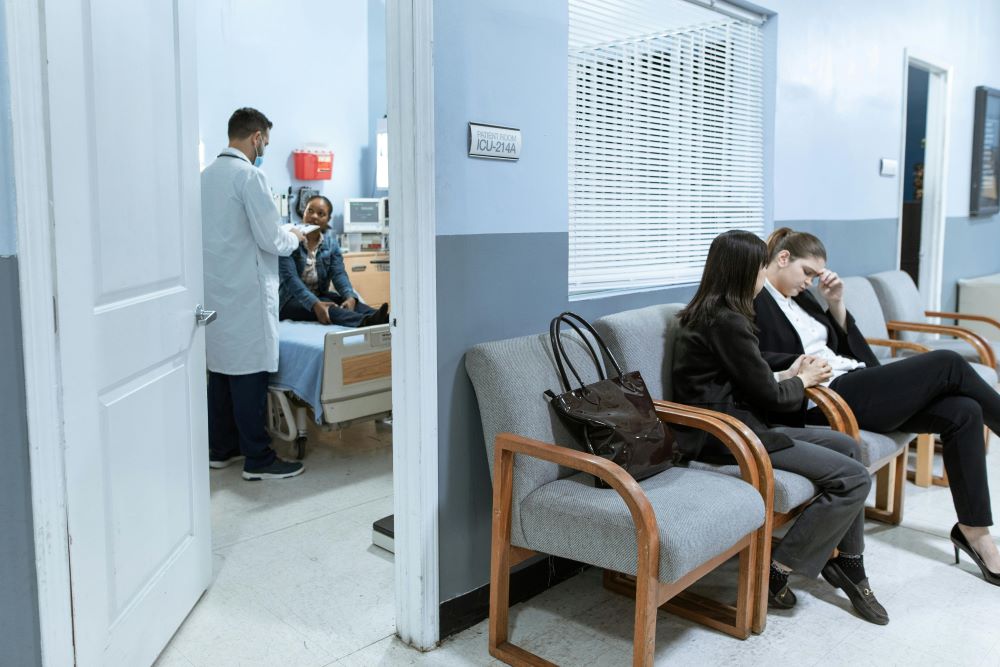It is an arduous process, but with the right knowledge and support, securing fair compensation is within your reach.
Suffering an injury due to someone else’s negligence can be a harrowing experience. Beyond the immediate physical and emotional pain, the potential legal maze that follows can be overwhelming. You or a loved one may find yourselves contemplating the validity of a personal injury claim, unsure of your rights and legal standing. To demystify this complex process, we will dissect the critical factors that can make or break a personal injury claim. Keep on reading to learn more!
Legal Foundations
At the heart of a personal injury claim lie legal constructs that dictate who is at fault and what remedies are available. Principles such as negligence, which requires the plaintiff to prove that the defendant failed to exercise reasonable care, and statutes of limitations, which impose deadlines on when a claim can be filed, are the bedrock of personal injury law. These statutes can vary by state, but they universally reinforce the importance of acting swiftly to protect your legal interests.
Statutes of Limitations
Your right to sue has an expiration date, enforced through statutes of limitations. Legal action must be taken within a specified time frame after the incident or when the injury was discovered. Failure to file within this window can result in the loss of the right to seek compensation.
Negligence Laws
The concept of negligence is crucial in personal injury claims. You will need to establish that the defendant’s failure to act reasonably resulted in your injury. Proving negligence typically involves demonstrating four elements: duty, breach, causation, and damages.
Evidence and Documentation
The adage “the devil is in the details” has never been truer than in personal injury claims. Evidence and documentation can transform a nebulous claim into a tangible case for compensation.
Types of Evidence
Evidence comes in many forms, including physical evidence from the scene of an accident, testimony from witnesses, and records of your treatment and recovery. Each piece reinforces your narrative and holds the liable party accountable.
Preserving Evidence
Acting quickly to preserve evidence is critical. This may involve taking photographs of the accident scene, getting the contact information of witnesses, and securing any relevant documents, like incident reports or medical records.
Comparative Negligence
In some instances, the plaintiff may share a degree of blame for the incident. Understanding how comparative negligence affects your claim is key to managing expectations and strategy.
How It Works
Comparative negligence laws assign a percentage of fault to each party involved. Your compensation may be reduced in proportion to your degree of fault. For instance, if you are found 20% responsible, your compensation could be decreased by 20%.
Impact on Your Claim
Knowing that your actions could influence the outcome highlights the importance of legal guidance and building a compelling argument for why the defendant bears the majority of responsibility.
The Role of Insurance Companies
Insurance plays a pivotal role in personal injury claims. Understanding how insurance companies approach and evaluate claims can provide insight into the process.
Evaluating Claims
Insurance adjusters assess the merits of your claim and offer settlements. Their goal is to resolve the claim for as little as possible, not to ensure you receive fair compensation.
Dealing with Adjusters
Engaging with insurance adjusters directly can be challenging. It’s important to remember that you are not required to accept their first offer and to consult with an attorney before making any decisions.
Medical Treatment and Record Keeping
Timely medical treatment and comprehensive record-keeping are essential in personal injury cases. They not only contribute to your healing but also serve as the backbone of your claim.
Seeking Treatment

Prompt medical attention ensures that you receive necessary care and that injuries are documented, linking them to the accident in question.
The Value of Records
Detailed medical records and bills provide a clear picture of your damages. They establish the extent of your injuries and the costs required for your recovery.
Legal Representation
Navigating a personal injury claim without legal expertise is a vast undertaking. An attorney can provide invaluable guidance and advocacy throughout the process. And, on the Abogadoray website, and other similar ones, you can read more on how to find a lawyer that is best suited for your specific case. That way, you can ensure that your rights are protected and that you have the best chance of achieving a favorable outcome.
When to Seek Representation
In complex or high-stakes cases, representation is almost always necessary. Even in less complicated scenarios, a lawyer can help protect you from legal tactics designed to lessen your compensation.
The Advocate’s Role
An attorney’s role is to fight for your rights, offer legal counsel, negotiate on your behalf, and, if necessary, represent you in court. Their experience can be the difference between a sufficient settlement and one that falls short of addressing your needs.
The road to a successful personal injury claim is paved with careful consideration of these factors. From understanding the legal landscape to the role of evidence and insurance companies, each aspect plays a critical part in determining the strength of your claim. It is an arduous process, but with the right knowledge and support, securing fair compensation is within your reach.
If you or someone you know faces the aftermath of a personal injury, take the time to digest the lessons in this article. Remember, each case is unique, and seeking tailored legal advice is crucial. With perseverance and prudent action, the justice you seek can become a reality.

Join the conversation!